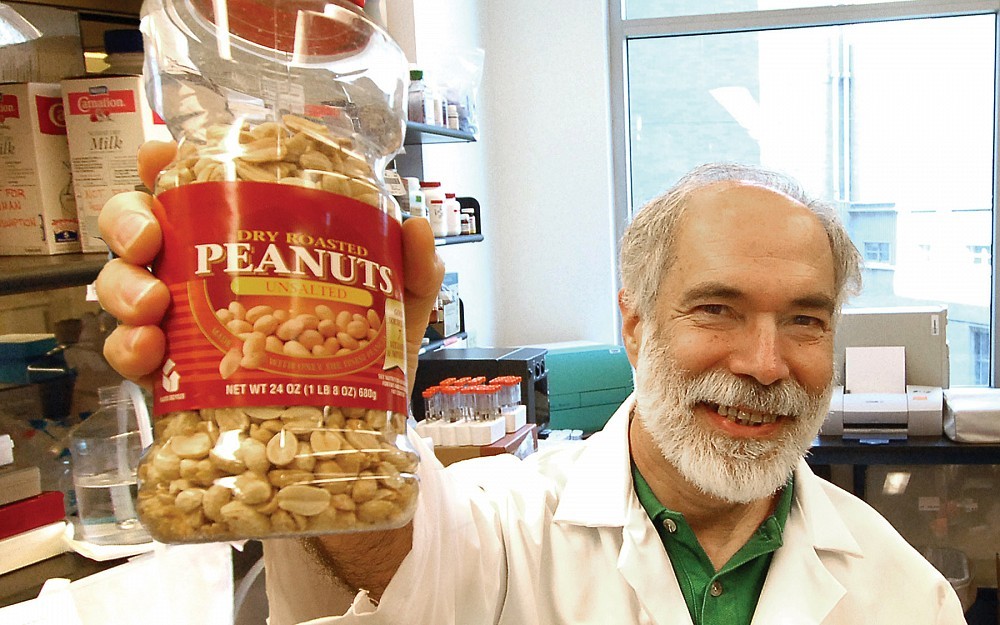
UC Researcher Primed to Study the Culprit Behind Dangerous Peanut Allergies
CINCINNATIWhy the peanut?
Thats the question internal medicine researchers Fred Finkelman, MD, and Marat Khodoun, PhD, will attempt to answer in a new food allergy study soon to begin at UC.
UC and Cincinnati Childrens Hospital Medical Center are two of only 12 sites across the country awarded grants totaling $5 million to study food allergies.
The grants come from the National Institutes of Health (NIH) and two food allergy advocacy groups. The UC study$430,000 over two yearsfocuses on the peanut.
Severe food allergy is most frequently caused by peanuts and tree nuts, especially in adults, says Finkelman, a professor of medicine in UCs immunology division.
One reason peanuts top the list of food allergens, he says, may be that one or more proteins in peanuts activate what is known as the bodys complement system.
Normally, this system is a positive defense system that assists in fighting bacteria and viruses, but when presented with peanut the system can become inappropriately activated, causing adverse reactions. While activation may cause some people no reaction at all or to just get a little bit sick, for others it contributes to anaphylaxis, a serious allergic reaction that is rapid in onset and may cause shock and death.
The challenge, says Finkelman, is determining which peanut protein or combination of peanut proteins causes activation.
According to the NIH, there are more than 30,000 cases of foodinduced anaphylaxis and as many as 150 food anaphylaxis-associated deaths in the United States each year, with most of the deaths in adolescents and young adults.
UC is a powerhouse when it comes to allergy-related areas, and when you consider we have two grants hereto UC and Childrensit shows a synergy between us, says Finkelman.
Carine Blanchard, PhD, a researcher in the division of allergy and immunology at Cincinnati Childrens, has received $250,000 to study the molecular mechanisms behind food anaphylaxis with particular interest in the role a protein (TSG6) plays in food allergy responses. Blanchards team has previously shown an increased expression of TSG6 in a disease related to human food allergieseosinophilic esophagitis.
This study will focus on understanding the expression and role of TSG6 in food allergy responses.
Tags
Related Stories
UC study examines delivery timing in mothers with chronic...
December 19, 2024
In a study recently published in the journal O&G Open, University of Cincinnati College of Medicine physician researchers found 39 weeks of gestation is optimal for delivery in mothers with chronic hypertension.
UC receives $3.75M in federal funding for K-12 mental health...
December 18, 2024
A three-year, $3.75 million grant from the Department of Education aims to address critical gaps in the mental health and educational landscape by providing tuition stipends for UC graduate students majoring in school and mental health counseling, school psychology and social work.
Winter can bring increased risk of stroke
December 18, 2024
The University of Cincinnati's Lauren Menzies joined Fox 19's morning show to discuss risk factors for stroke in the winter and stroke signs to look for.
